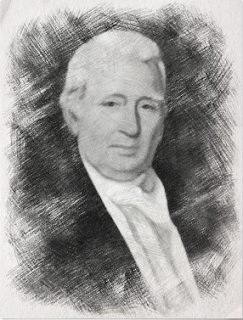A recent New York Times story related the horrors of dining out in today’s society. Bemoaning the high cost of food and the low level of service, the article went to great lengths to assert it’s point that it’s personal service and warmth that make the difference in whether people enjoy their dining experience. Lack of experienced wait staff, the pandemic, and a few other factors were cited as contributing to the problem. The high cost was virtually ignored, although the cited $200 for a simple dinner and drinks comes to more than four times this writer’s monthly food budget (food only, by the way. none of the other things you might get in a grocery store).
Something else was also ignored, although hinted at. Attitude of the wait staff was stressed, as well as the level and types of service and whether customers felt welcome and friendly. That is important, of course, and there were a few things suggested that restaurant owners and managers had done to try and improve staff morale.
It was, however, all superficial. No one got to the heart of the matter, the real cause of what is wrong with the restaurant industry today, and in fact has been pervasive through much of the world for the past two centuries. That is the growing disconnect between people and society, and at the heart of that is the now almost-total disconnect of people from the means of being directly and visible productive. Few people today see any direct connection between what they do to gain income and the production of something useful. Even fewer have the direct connection between production and consumption private property conveys, whether private property in one’s own labor, or in one’s own capital.
Doubtless this comes as a stunning surprise to many people, for they have been trained over the past two centuries to think only in terms of consumption, not production. This is understandable up to a point. When technology was at a low level, it was patently obvious that human labor was responsible for the bulk of production. Most capital, even land, at best only enhanced or assisted human labor in the task of producing marketable (consumable) goods and services. Ownership of technology and land — capital — was incidental.
 |
| Human Capital |
The greedy and the powerful didn’t buy shares on Wall Street (ownership of capital), they bought slaves (ownership of labor not their own). People who somehow generated income without directly producing consumption items were looked on with more than a little suspicion. Merchants were presumed to be thieves, and it was up to them to prove otherwise. Worse, people like the Jews who performed the banking function, viz., turning existing and future savings into money, were viewed as magicians, probably in league with Satan, for appearing to acquire wealth without human labor, i.e., magically.
 |
| Ned Ludd |
Obviously, then, when technology started advancing, and owners of the new machinery began to accumulate more wealth than any normal person could acquire in several lifetimes, it was obvious that they must be stealing it from workers and consumers . . . or so Karl Marx and other socialists declared. Luddites and saboteurs appeared.
Most people today don’t realize that the Luddites were not against technology. No, they were against technology that they didn’t own that took away their livelihoods. And the saboteurs? The same thing. They weren’t throwing their sabots (wooden shoes) into their own machines, but into those owned by others that were taking their jobs.
And the solution? As Hilaire Belloc put it in The Servile State (1912), his biting condemnation of both capitalism and socialism as they continued their convergence,
 |
| Hilaire Belloc |
Had property been well distributed [at the start of the Industrial Revolution], protected by co-operative guilds fenced round and supported by custom and by the autonomy of great artisan corporations, those accumulations of wealth, necessary for the launching of each new method of production and for each new perfection of it, would have been discovered in the mass of small owners. Their corporations, their little parcels of wealth combined would have furnished the capitalisation required for the new processes, and men already owners would, as one invention succeeded another, have increased the total wealth of the community without disturbing the balance of distribution. There is no conceivable link in reason or in experience which binds the capitalisation of a new process with the idea of a few employing owners and a mass of employed non-owners working at a wage. Such great discoveries coming in a society like that of the thirteenth century would have blest and enriched mankind. Coming upon the diseased moral conditions of the eighteenth century in this country, they proved a curse.
Consequently, as Goetz Briefs recorded in his book, The Proletariat: A Challenge to Western Civilization (1937), a class of people appeared, great in number, owning no capital and who were thus utterly dependent on others for their income. Defining slavery as a condition of complete dependency on others who are thereby able to control one’s actions, the proletariat constitute a race of masterless slaves . . . which is precisely what Aristotle called nominally free persons who owned no capital but relied on wages paid by others or charity or welfare for their subsistence. As William Cobbett, whom G.K. Chesterton called “the Apostle of Distributism” (distributism being a policy of widely distributed property with a preference for family-owned farms and businesses), put it,
 |
| William Cobbett |
Freedom is not an empty sound; it is not an abstract idea; it is not a thing that nobody can feel. It means, — and it means nothing else, — the full and quiet enjoyment of your own property. If you have not this, if this be not well secured to you, you may call yourself what you will, but you are a slave. (William Cobbett, A History of the Protestant Reformation in England and Ireland (1827), § 456.)
What is the point of all this? Simple. If you want to connect people with each other and to society at large, then do what political thinkers have urged for thousands of years, turn them into capital owners. This is, in fact, not simply because of the overwhelming need to reconnect people with each other and the common good, but to optimize the chance that most people can gain a living income — and an income that does not enforce a condition of dependency on others. As Louis O. Kelso was quoted in an editorial in Life magazine in July, 1964, “If the machine wants our jobs, let’s buy it.”
Restaurant owners and managers seem willing to do anything and everything to ensure that their wait staff reconnect with the customers except one thing: turn everyone who works in the restaurant into an owner of the restaurant. As Aristotle noted 2,500 years ago, people pay most attention to that which is their own. One possible way is adopt the Economic Democracy Act, summarized in The Greater Reset (2022).
#30#



